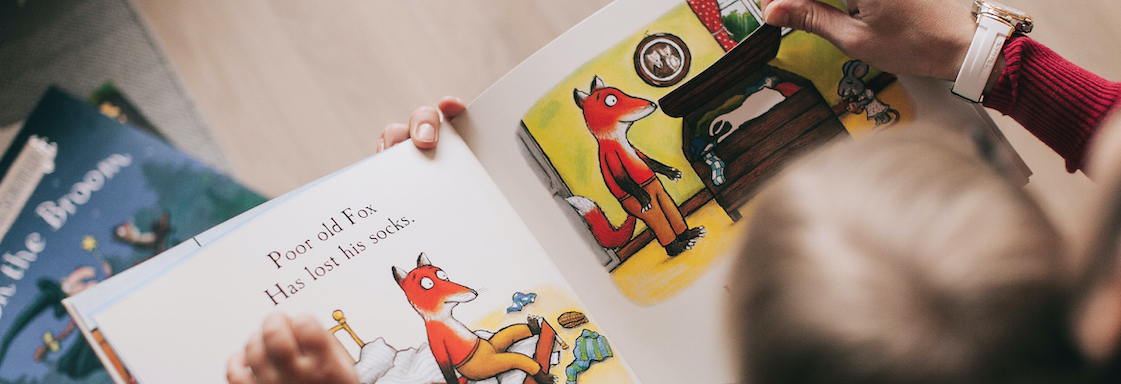Whether or not your child has a disability, reading, and story-telling is a critical way to help them develop speech and language skills.
We use books and story-telling with children to help promote brain development, teach language and emotions, spark curiosity, and encourage children to use their imagination. The book you choose to read is not as important as how you read it to your child. Some books have many words and some books have no words. Feel free to read the books and remember to interact with your child throughout the reading activity.
You can do this by pointing out objects and characters, asking questions about what the characters are doing, describing pictures in the book, calling attention to colors, actions, emotions, animals, or people. This will help your child to develop a robust vocabulary as kids are visual and auditory learners.
Reading every word in the book is an option but not required to engage your child in a language-rich learning experience. Books that include songs, rhymes, and repetitions are a great way to get your child involved in the story. Have them repeat common phrases, sing-a-long, and predict rhymes throughout the story to keep them engaged.


